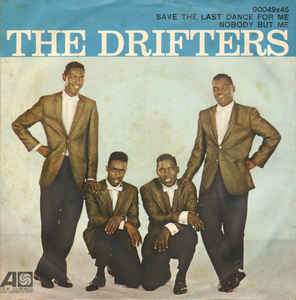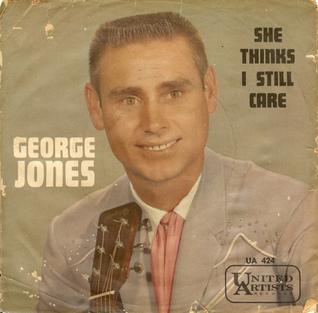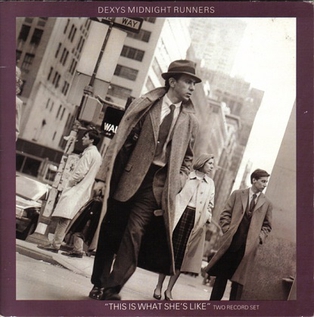
Robert George "Joe" Meek was an English record producer, sound engineer and songwriter who pioneered space age and experimental pop music. He also assisted in the development of recording practices like overdubbing, sampling and reverberation.

John Dudley Leyton is an English actor and singer.

Mike Berry is a British singer and actor. He is known for his top ten hits "Don't You Think It's Time" (1963) and "The Sunshine of Your Smile" (1980) in a singing career spanning nearly 60 years. He became an actor in the 1970s, and was best known for his appearances as Mr. Spooner on the British sitcom Are You Being Served? in the early 1980s.
Boy Meets Girl is an American pop-music duo consisting of keyboardist and vocalist George Merrill and singer Shannon Rubicam. They are perhaps best known for their hit song "Waiting for a Star to Fall" from 1988 and for writing two of Whitney Houston's number one hits: "How Will I Know" and "I Wanna Dance with Somebody ".

The Honeycombs were an English beat group, founded in 1963 in North London, best known for their chart-topping, million-selling 1964 hit, "Have I the Right?" The band featured Honey Lantree on drums, one of the few high-profile female drummers at that time. They were unable to replicate the success of their first single and disbanded by 1967.

"Save the Last Dance for Me" is a song written by Doc Pomus and Mort Shuman, first recorded in 1960 by American musical group the Drifters with Ben E. King on lead vocals. It has since been covered by several artists, including Dalida, the DeFranco Family, Emmylou Harris, Dolly Parton, and Michael Bublé.
Fair Weather was a British rock band formed in 1970 by former Amen Corner guitarist and singer Andy Fairweather Low. They are best known for their track "Natural Sinner".

I Hear a New World is a studio concept album written and produced by Joe Meek with the Blue Men, partially released as an EP in 1960 before financial issues at the Triumph label prevented further release of the material. In 1991, the full LP was issued by RPM Records. In 1998, The Wire listed the album as one of "100 Records that Set the World on Fire ".
Mark Wynter is an English singer and actor, who had four Top 20 singles in the 1960s, including "Venus in Blue Jeans" and "Go Away Little Girl". He enjoyed a lengthy career from 1960 to 1968 as a pop singer and teen idol, and developed later into an actor in film, musicals and plays.
Geoffrey Goddard was an English songwriter, singer and instrumentalist. Working for Joe Meek in the early 1960s, he wrote songs for Heinz, Mike Berry, Gerry Temple, The Tornados, Kenny Hollywood, The Outlaws, Freddie Starr, Screaming Lord Sutch, The Ramblers and John Leyton. His song for Leyton, "Johnny Remember Me", reached number 1 in the UK Singles Chart.
Bell Records was an American record label founded in 1952 in New York City by Arthur Shimkin, the owner of the children's record label Golden Records, and initially a unit of Pocket Books, after the rights to the name were acquired from Benny Bell who used the Bell name to issue risque novelty records. A British branch was also active in the 1960s and 1970s. Bell Records was shut down in late 1974, and its assets were transferred to Columbia Pictures' new label, Arista Records.
Michael Waller was an English drummer, who played with many of the biggest names on the UK rock and blues scene, after he became a professional musician in 1960. In addition to being a member, albeit sometimes briefly, of some of the seminal bands of the 1960s, Waller played as a session musician with a host of UK and US artists.

Maureen Evans is a Welsh pop singer who achieved fame in the 1950s and 1960s.
Clinton Conger Ballard Jr. was an American songwriter, singer, and pianist. He wrote two Billboard Hot 100 number one hits. The first was "Game of Love" by Wayne Fontana and The Mindbenders in 1965. The second was the 1975 hit, "You're No Good" by Linda Ronstadt. He wrote two UK number one singles, recorded by Jimmy Jones and The Hollies.

"She Thinks I Still Care" is a country song written by Dickey Lee and Steve Duffy. The song was recorded by multiple artists, including George Jones, Connie Francis, Anne Murray, Elvis Presley and Patty Loveless.
Johnnie Mae Matthews was an American blues and R&B singer, songwriter, and record producer from Bessemer, Alabama. Known as the "Godmother of Detroit Soul" and as the first African American female to own and operate her own record label she was an early influence on the careers of many of the now-famous recording stars who began their careers in Detroit, Michigan such as Otis Williams, David Ruffin, and Richard Street of The Temptations, Jimmy Ruffin, Joe Hunter of the Funk Brothers Band, Richard Wylie, Norman Whitfield, Berry Gordy, founder of Motown Records, Timmy Shaw, Barbara Lewis, Bettye LaVette and many more.

The Flee-Rekkers – also known as The Fabulous Flee-Rakkers – were a British instrumental rock and roll band in the late 1950s and early 1960s. The group name varied on early singles; they were billed as "The Fabulous Flee-Rakkers" or "The Fabulous Flea-Rakkers" in early 1960, before settling on "The Flee-Rekkers" for all later releases. They were fronted by tenor saxophonist Peter Fleerakkers, and their records were produced by Joe Meek. Their biggest hit was "Green Jeans" in 1960.
Michael James Cox is a British-born former pop singer and actor. As Michael Cox, he had a top-ten hit on the UK singles chart in 1960 with "Angela Jones", produced by Joe Meek. He later worked as an actor, and in TV in New Zealand, using both his full name and the name Michael James.

My Country is a double album by George Jones. It was released on the Musicor label in 1968.

"This Is What She's Like" is a song by Dexys Midnight Runners, released on their third studio album Don't Stand Me Down in September 1985 by Mercury Records, and in November 1985 as a single. The song is credited to Kevin Rowland, Billy Adams, and Helen O'Hara, with production by Rowland and Alan Winstanley. The song, inspired by Rowland's relationship with O'Hara, includes spoken conversations between Rowland and Adams. Rather than answering Adams's repeated in-song question about what "she" is like, Rowland contrasts the "she" of the title with people who irritate him, for example those who put creases in their jeans, and members of the Campaign for Nuclear Disarmament.










